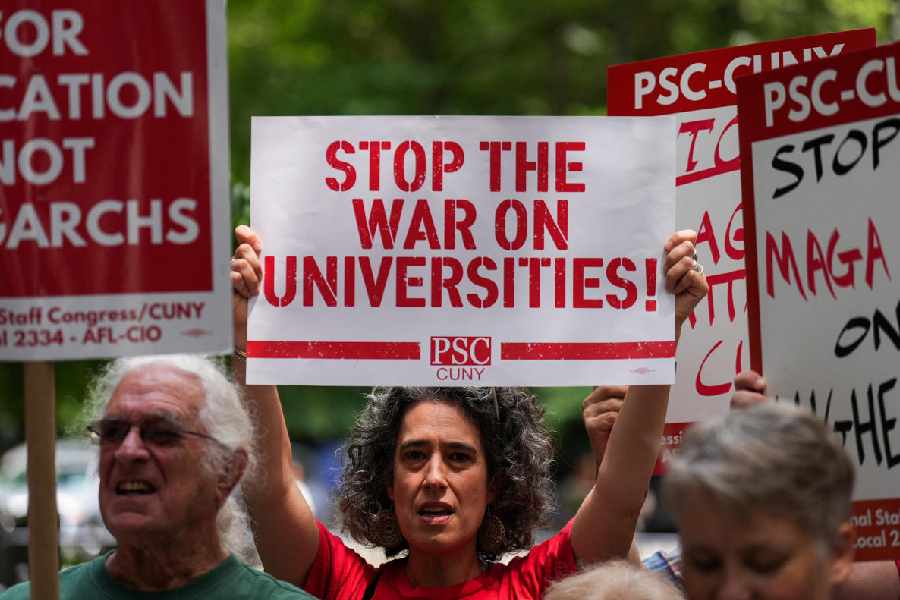The heads of three universities will appear before Congress on Tuesday, becoming the latest batch of leaders who Republicans have called to Washington over allegations of campus antisemitism.
In a hearing before the House Committee on Education and the Workforce, leaders from the City University of New York, Georgetown University and the University of California, Berkeley, will testify about "the role of faculty, funding and ideology" in antisemitism.
The first hearings targeted Ivy League universities, but Republicans have widened their lens to other kinds of institutions, which they say also failed to keep Jewish students safe when pro-Palestinian protests swept campuses around the country.
While the protests have died down substantially since last year, Tim Walberg, a Michigan Republican and the committee's chair, said in a statement that lawmakers "continue to see antisemitic hatred festering at schools across the country".
Walberg echoed President Donald Trump, who campaigned on punishing universities that he said had not done enough to curb antisemitism. The Trump administration has taken away major sums of money — billions in Harvard's case — from top universities. A federal task force on antisemitism has singled out many institutions for investigation, and federal agents have detained international students who were involved in pro-Palestinian activism.
Todd Wolfson, the president of the American Association of University Professors, a faculty rights group, called the idea that professors are fomenting antisemitism "preposterous" and likened the university hearings to "show trials" that have a chilling effect on academic freedom. "I have faculty saying to me, 'Two years ago I published something on the Middle East — am I going to get fired?'" Dr Wolfson, who is Jewish, said in an interview.
The three universities at Tuesday's hearing have all had pro-Palestinian activism on their campuses.
Berkeley is the site where Students for Justice in Palestine, a student activist group, was founded in the early 1990s. In 2024, pro-Palestinian demonstrators erected scores of tents on the campus, and an event featuring an Israeli speaker was cancelled after protesters smashed doors. The chancellor at the time called it "an attack on the fundamental values of the university". After the incidents, the House committee demanded documents about Berkeley's response to antisemitism.
At CUNY, one of the nation’s largest public university systems, with nearly 240,000 students and 26 colleges, the law school, in particular, is known for the outspoken pro-Palestinian activists among its graduates. Protests at CUNY campuses in 2024 also led to mass arrests. After an investigation, the education department's Office for Civil Rights said last year that the university had mishandled a number of complaints of antisemitism and other forms of bias since 2019.
The third university represented at Tuesday's hearing, Georgetown, has vocally opposed the Trump administration's moves against colleges. In March, the US attorney for the District of Columbia threatened to bar Georgetown graduates from federal jobs because of the university's diversity programming. The law school dean called the threat unconstitutional in a strongly worded response.
New York Times News Service










